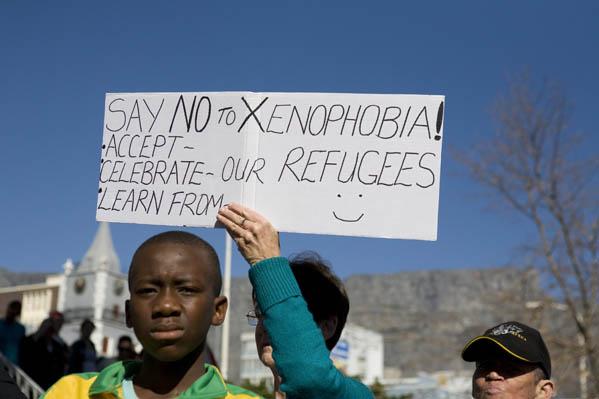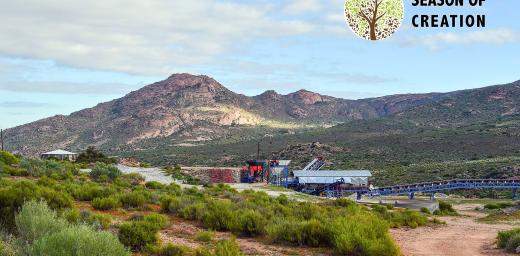Politically, we are all foreigners

Fan walk for peace and unity - photo from 2010. Credit: Janah Hattingh, Creative Commons
In the wake of violence against migrant workers in his native South Africa, executive director of the Lutheran Church of Southern Africa's Rev. Dr David Tswaedi reminds us that we are all descended from another land or country.
Watching what is happening in Durban and across our beautiful land makes one wonder whether we as people understand what we are doing.
Xenophobia is caused by total lack of understanding, misinformation, political blindness and forgetfulness.
Yet, all people on this planet are foreigners, politically, and one person, biologically. “Out of one blood he made them all,” as we read in Acts 17:26.
Human beings, both highly influential and less influential, have all been migrants and foreigners at one time or another.
All the inhabitants of South Africa – in cities and townships alike - originated somewhere else in this country or globe. We are all products of a huge human migration that began with one person, Adam.
Our forebears walked, not flew, from Iraq to the place we are now. Some of our genes were left along the way, in Egypt, Sudan, Somalia, Kenya, Uganda, Burundi, the Democratic Republic of the Congo, Malawi and Zimbabwe.
We are foreigners and foreigners are us. History records that most of our heroes of faith were at some time migrants: Terah, Abram’s father left Iraq-Mesopotamia and settled in Syria (Genesis 11:27), Abraham left Syria and settled in Palestine (Genesis 12:1), and “it was not long that he became an economic migrant in Egypt when his country was burnt by famine” (Genesis 12:10). His grandson years later repeated the same journey.
Our text records King David being a political fugitive as Saul and later his son Absalom wanted to kill him. Our Lord Jesus, also fled genocide for Egypt.
Let’s spare a thought for the lives of our fellow human beings from other countries. We are those people.
Related:
In 2013, the LWF endorsed a code of conduct, Welcoming the Stranger, calling on faith leaders and organizations to enhance efforts to stand united against xenophobia.
The Lutheran Church of Southern Africa is made up of 17 autonomous Lutheran churches in 10 southern African countries.
Photo: Fan walk for peace and unity: Charlies' Bakery, a successful Cape Town bakery, organised a fan walk to celebrate the 92nd birthday of Nelson Mandala in July 2010. The walk was also dedicated to creating awareness of xenophobia in South Africa. Credit: Janah Hattingh, Creative Commons





